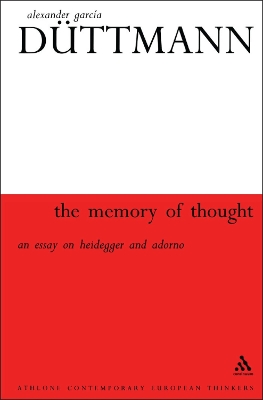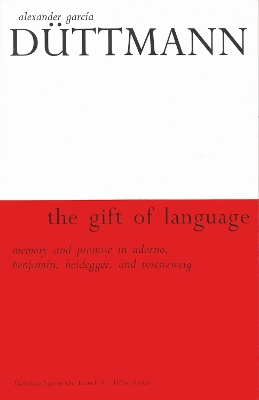Athlone Contemporary European Thinkers S.
2 total works
Reconstructs the philosophy of Adorno and Heidegger in the light of the importance that these thinkers attach to two proper names: Auschwitz and Germanien. In Adorno's dialectical thinking, Auschwitz is the name of an incommensurable historical event that seems to put a provisional end to history as a negative totality. In Heidegger's thinking of Being, Germanien is a name inscribed in an historical mission on which the fate of Western civilization seems to depend: it thus becomes the name of a positive totality of history.
In this book Alexander Garcia Duttman explores and expands the works of Heidegger, Rosenzweig, Adorno, Benjamin, and Derrida. Out of his very fresh and pointed re-reading, he uncovers a peculiar correspondence of obsessions, interests, and priorities between these diverse twentieth century philosophies. And from these discoveries Duttman details a singular philosophical theory of memory and promise. Duttman's methodology is as groundbreaking as his discoveries. Alan Udoff writes: This is not an exposition in the conventional sense: a scholarly, historical report, with some attempt at criticism. Rather, it is at every turn a thinking through of certain texts, a thinking that, in putting questions to the texts ... reveals or releases what is ... stored in those texts. Duttman's questions are so philosophically and theologically penetrating that the reader is set out in new direction of thinking. While Duttman's book helps the reader achieve a new understanding of the gift of language in the works of Adorno, Benjamin, Heidegger, and Rosenzweig, his study also is fraught with implications for reading Derrida, Deleuze, Levinas and Lyotard.

